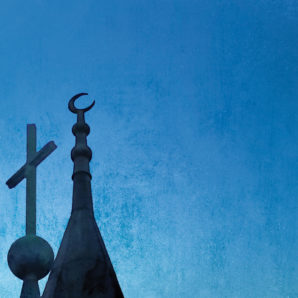Catholics in the Call Center
In 2005, I visited Bangalore for the first time in ten years, and was astonished at the major facelift the city had undergone. The once quiet and easy-going “garden city” was now a thriving metropolis, dotted with an ever-growing number of shopping malls, coffee shops, glass-paneled office towers, KFC and McDonald’s franchises, and Pepsi billboards. Besides these usual symbols heralding the arrival of globalization, one new development struck me as peculiar: the outsourcing industry. I soon discovered that outsourcing highlights some of the important tensions between new modes of secularity and new religious modernities—including Catholic ones—emerging around the world.
Read More →
In 2005, I visited Bangalore for the first time in ten years, and was astonished at the major facelift the city had undergone. The once quiet and easy-going “garden city” was now a thriving metropolis, dotted with an ever-growing number of shopping malls, coffee shops, glass-paneled office towers, KFC and McDonald’s franchises, and Pepsi billboards. Besides these usual symbols heralding the arrival of globalization, one new development struck me as peculiar: the outsourcing industry. I soon discovered that outsourcing highlights some of the important tensions between new modes of secularity and new religious modernities—including Catholic ones—emerging around the world.
Read More →
